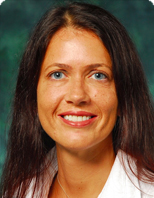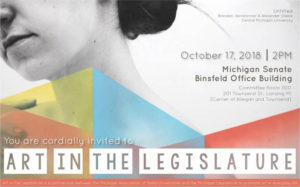During the twenty-five years since its inception, the Wolverine Caucus has been a forum where a wide variety of U-M faculty members share their expertise with legislators, lobbyists, advisors and alumni. Their research informs the public policy debates that directly impact Michigan residents.
In January 1993, then-Dean Garry D. Brewer introduced New Directions for the School of Natural Resources and Environment (SNRE) at the first ever Wolverine Caucus. Twenty-five years later the SNRE has become the School for Environment and Sustainability (SEAS), and thousands of its graduates work across Michigan to protect our natural resources and create a more sustainable future. Professor Brewer’s presentation at the Caucus began a quarter-century of engagement that continues to this day and connects the University of Michigan to state policymakers.
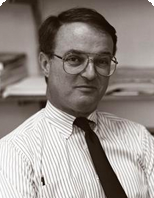
Garry D. Brewer
“Having wonderful support from the top leadership of the university and also from many new dean colleagues was crucial, and it was given often, constructively, and with good effect. Coming to Lansing for your event was one of the earliest public airings of ‘New Directions.'”
-Professor Garry D. Brewer
Many of the topics covered by Wolverine Caucus forums remain relevant for decades, even as times change. Public discussion on environmental issues has only amplified since that first Wolverine Caucus forum in 1993. Themes discussed in the 2001 presentation on Political parties, the Courts, and Legislative Redistricting are as prominent today as they were then. Years from now, what insights might be plucked from the 2018 forum when the robot Cassie Blue walked through the halls of the Michigan State Capitol? Do the 2016 and 2017 forums on the role of 3D Printing in medicine suggest an amazing new frontier in life-saving healthcare technology? It remains to be seen, and the 2019 series, which includes discussions on trade and autonomous vehicles, promises to cover topics grounded in today but facing tomorrow.
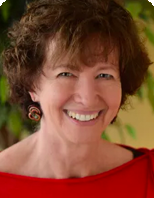
Marianne Udow-Phillips
“I think the Wolverine Caucus is a great platform – a wonderful way for alums to hear about the work of the University, and for U-M to reach out to provide continuing education and connections to our colleagues in Lansing.”
– Marianne Udow-Phillips
The relevance of topics at the Wolverine Caucus forums grows with the importance of contemporary issues. Speakers often return again and again as the conversation and policy implications evolve. In June of 2010, Marianne Udow-Phillips, Executive Director of the U-M Center for Healthcare Research and Transformation, spoke to a packed room about the Affordable Care Act (ACA). She returned five years later, as the national landscape continued to roil with debate over the subject, and spoke again to further inform the discussion regarding the impact of the ACA. She was accompanied by Dr. John Ayanian, the Director of the U-M Institute for Healthcare Policy and Innovations.
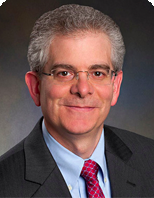
Dr. John Ayanian
“The Wolverine Caucus provided an excellent forum to report on the benefits and challenges of the Affordable Care Act in early 2015, including the launch of the Healthy Michigan Plan that has expanded Medicaid coverage to many Michigan adults. This event brought legislators, their staff members, and other state officials together with alumni and friends of the University of Michigan for an open and balanced discussion of health care reform in Michigan and the nation.”
– Dr. John Z. Ayanian
The state of politics has been an ever-present topic of conversation for Michigan dinner tables, and so too has it been an enduring fixture for the Caucus. In 1998, Professor Michael Traugott from the Center for Political Studies at the Institute for Social Research spoke to the Caucus for the first time about the upcoming midterm election. He returned to present ten more times and addressed various topics including 9/11, campaign finance, and political polarization. Marking the conclusion of the 2018 series in September he will give his eleventh presentation entitled: Elections 2018: Is There a Big Blue Wave Coming?

Michael Traugott
“I always enjoy going to the state capital to talk to Michigan alums about politics because they are an attentive and knowledgeable audience. Many of them either work in state government or for groups that have strong political and policy interests. They always ask good questions, and they expect comprehensive answers. I also think that it is part of my responsibility as a faculty member to engage with the public about my research and explain how it affects their lives.”
-Michael Traugott
Whether it’s Smart Cars and College Affordability from the 2014 series, or Youth Violence Prevention and Census Outcomes from the 2011 series, the Wolverine Caucus will continue to connect the depth of U-M expertise and research to the government in Lansing, and encourage open dialogue between presenters, policy-makers, and the community. All events are open to the public, and events are recorded and made available to local cable outlets and on the internet.
About the Wolverine Caucus:
Cynthia Wilbanks, University of Michigan Vice President for Government Relations, oversees the Wolverine Caucus. Events are coordinated by Lansing Service Center Director Veronica A. W. Johnson, Ph.D, who created the Wolverine Caucus and has managed the forum since its inception. For twenty-five years the Wolverine Caucus has been an opportunity for the University of Michigan, legislators, and the community to engage with each other on a myriad of important issues affecting the State of Michigan.
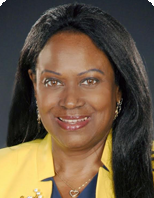
Veronica A. W. Johnson, Ph.D, Director of the Lansing Service Center
“Over these years the Wolverine Caucus has been an important platform to bring UM expertise on issues impacting every sector of society.
In addition to policymakers, the Wolverine Caucus programs engage countless U-M alumni who work in and around state government, as well as informing citizens on many topics, and sharing with many via social media, YouTube, and public television broadcasts.
We are grateful for the invaluable partnership of the Wolverine Caucus Co-Chairs Craig Ruff and Tom Scott in helping to identify relevant topics as they come to the forefront, making our forums very timely with current policy debates.”
-Veronica A. W. Johnson, Ph.D
